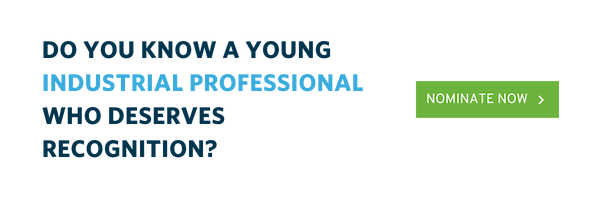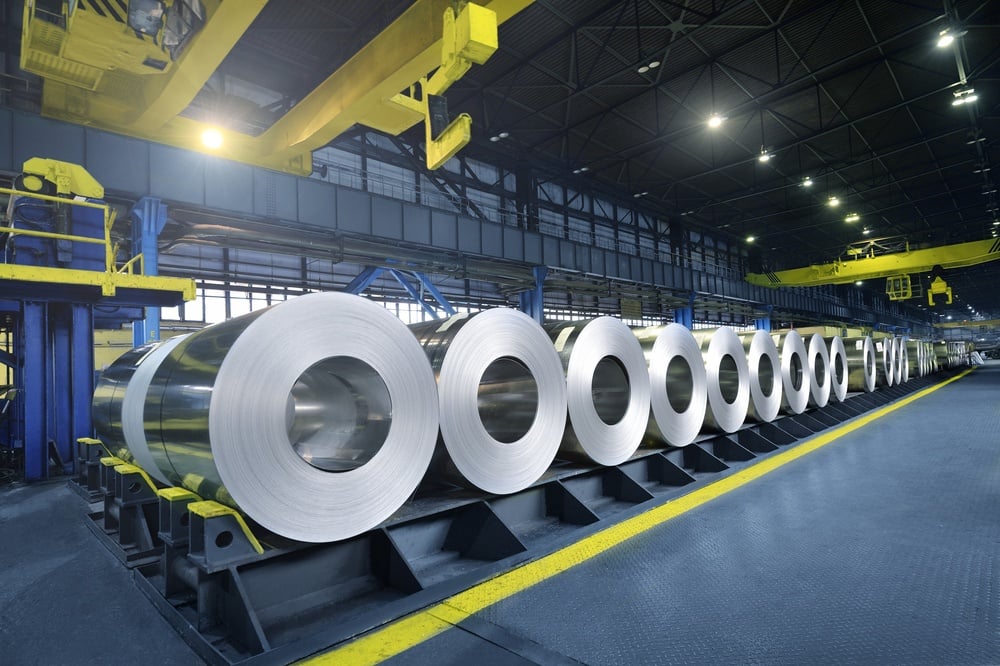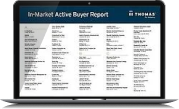How To Successfully Make A Career Change Into Supply Chain
Team Thomas October 23, 2019
Deciding what you want to do with your life can be overwhelming, especially when that decision is made early in your career. In fact, an astounding majority of people don’t find their calling right away and trends are showing people are no longer working for one company their whole career — the average person changes jobs an average of 12 times during his or her career.
But making that switch can be daunting and confusing. There are so many options, and the wrong move can set you back in your career and in your finances.
However, switching to supply chain can be a great option. The field is broad enough to be a fit for people with a variety of technical and soft skills. It's also a growing industry, with millions of new employees being added to the workforce.
If you need a little inspiration for your transition, look no further than our 30 Under 30 Rising Supply Chain Stars. Some of these young professionals shifted to supply chain from other industries, and they've already established themselves as leaders in the field. We spoke with a few of these professionals to get their advice.
Here's who we chatted with:
 |
Peter Lafave (PL) of Anthem made the switch from a political career to supply chain. |
 |
Teddy Lee Knox (TK) of Zipline Logistics made the switch from marketing/sales to supply chain. |
 |
Abhishek Dahiya (AD) of Google made the switch from engineering to procurement. |
 |
Subhash Segireddy (SS) of Cisco made the switch from engineering to supply chain and business strategy. |
 |
Sara Robichaux (SR) of Apache Corporation made the switch from accounting to supply chain. |
Inspiration For A Career Switch Might Be Closer Than You Think
SR: I originally worked at an accounting firm and I really enjoyed the analytical and client interface side of being an accountant, but I was looking for a change. I began researching for a job that had an analytical background but also had client interaction. It wasn’t until I spoke with my mother-in-law who worked in supply chain that I got some clarity in my career path. She wasn’t a supply chain major but was able to transition into a supply chain career when she was around my age. She mentioned how her career was able to grow and told me that there were many different career paths that stemmed from supply chain. That’s when I knew I wanted to focus on finding a supply chain job.
TK: To tell you the truth, I fell into supply chain while I was working in sales at my current company. I went into a marketing career after college and I didn’t love it as much as I thought I would. I liked working with people so I thought I should try sales. That’s when I saw an opportunity to work at Zipline Logistics. Luckily they had a great training program at the company so I was able to learn about logistics along the way. Then I ended up going away from sales and started working on the operation side of things the further I got into my career. I loved it so much because I’m able to work with people on a day-to-day basis. It was 100% what I was looking for.
Skills From Previous Jobs Can Pave The Way To A Supply Chain Career
SR: I always joke that accounting “haunts” me, but in a beneficial way. Working in accounting was very analytical, detail-oriented and client-facing, and it’s helped me in my sourcing role. When it comes to sourcing, it’s important to understand how the company works financially and operationally, and my analytical and detail-oriented skills from accounting were able to help me. Working with clients in accounting also helped me with my communication skills, which help me excel in my current role.
PL: My previous job was on a political campaign in New Jersey, and I was tasked to build coalitions and organize voter blocs for a U.S. Senate campaign. This involved both relationship building and data analysis. In order to succeed, I had to understand and empathize with diverse personality types while sorting and analyzing vast voter databases quickly and efficiently. These experiences carried over into my current role as a Strategic Sourcing Consultant, where I partner with internal stakeholders and vendors and utilize the vast spend data and trends at hand.
What products and services were surging in demand last quarter?
The Switch From Engineering To Supply Chain As A Natural Fit
AD: I was originally focused on engineering, and the striking similarities between supply chain and engineering really interested me. Engineering and supply chain are very similar in their basics and approach. Both fields try to optimize systems to remove redundancies, improve performance and save time, which requires problem solving. The mere difference lies in the scope, scale and systems used. The aptitude and the problem solving skills were essential. As a computer science, engineering graduate, I could correlate and use the aptitude and problem solving skills I gained in my engineering job in my new supply chain job.
SS: As an engineer, transitioning into supply chain was natural. I didn’t even realize I was making a move while I was working. Being an engineer, I can understand and pick up certain supply chain skills faster, such as data analytics and my math and computer science skills helped me stay ahead of the game.
Education And A Strong Professional Support System Can Help You Overcome The Learning Curve
TK: My company, Zipline Logistics, was able to help me make the switch from sales to logistics. My skill set allowed me to thrive on the logistics aspects of my sales job such as retaining and growing my clients. My company noticed these skill sets in me and they were eager to help me make that move towards a logistics role through their in-house training program.
Know of a colleague born between 1981 and 1996 who is driving success within your organization and the industrial sector overall? Nominate them for our NextGen For Industry award!
PL: Prior to my supply chain career, I worked on a political campaign in New Jersey. There was an initial learning curve around the technical aspects of the job since I had no previous training or experience in supply chain. There were certain technical terms and acronyms such as RFP, SOW, MSA, BATNA that were new to me. Thankfully, I had a lot of support from my manager and team that allowed me to learn the technical aspects of the industry and I was brought up to speed quickly.
Choosing A Supply Chain Career Path Will Prepare You To Work With Your Whole Organization
SR: The most surprising aspect of working in supply chain is how interconnected the role is to so many different departments. In my current role, I have the opportunity to work with our technical, operational teams (completions, drilling, production), IT, accounting, treasury, etc.
SS: If I stayed in engineering, I would not have interacted with as many people. There is so much interaction you get to have in supply chain and people skills are extremely important. It was surprising to learn how important communication skills were in my role. You have to be very communicative and influential to succeed in the field. Not just communicating with people within my company but with partners, suppliers and customers.
PL: Working in supply chain gives you a unique bird’s-eye view that I have of the entire business operation. Understanding the current state of the company’s primary suppliers and their functions, allows you a basic, big picture view of the business strategy, requirements and areas of improvement.
Advice To Future Supply Chain Professionals
AD: To succeed in supply chain, you must have patience, humility, and respect. Patience to accept that you do not always have the right answer. Humility to learn something from everyone and respect for the difference in cultures and people around the world. Mentorship is key when making the career switch.
The biggest mistake I made and I am sure many of my co-millennials would have too in their early career, is assuming that we know it all.
Related Info: Why Your Liberal Arts Degree Could Make You A Great Fit For A STEM Career
SR: Do a lot of research before you make a career switch. Supply chain is definitely a career that most people don’t understand and it’s looked at in a very traditional manner but I was able to do my own research on the field to get a better understanding of it.
TK: My advice is to not doubt yourself if you don’t have a supply chain degree. People get caught up in the degree and where you go from there. They think they need to go to grad school or pick traditional roles, but that isn’t always the case. I think it would be helpful to discover different industries they can apply their major to, including supply chain. It’s a little different, but that’s what makes it more fun.
Every month, Thomas recognizes a young professional (born between 1981 and 1996) who is making a difference in the industry with the NextGen for Industry Award. Manufacturing awards are a great way to get your company and loyal employees industry recognition. If any of the above professionals reminded you of someone you'd like to nominate, let us know here!
Additional articles you might be interested in:
- 4 Steps To Land Your Dream Job In The Industrial Sector
- Working In Manufacturing As A Millennial
- 5 Tricks To Answering Curveball Interview Questions To Land Your Dream Job
- A Leader for the Next Generation of Supply Chain Managers, Rose Celestin Named NextGen for Industry
- 6 Ways To Become An Asset To Your Organization [Confessions of an Industry Millennial]
- 7 Manufacturing Newsletters To Subscribe To Today
Did you find this useful?










